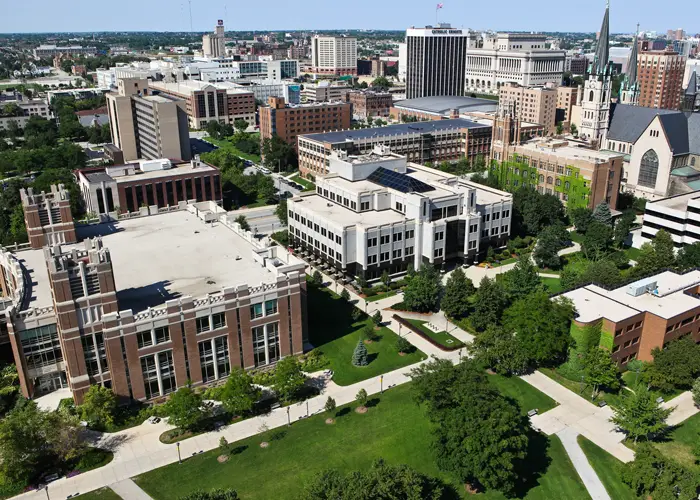Two Marquette University professors have won a $525,000 grant from the National Science Foundation to conduct research into green catalyst enzymes.
Brian Bennett, a professor and chair of physics, and Richard Holz, a professor of chemistry, received the award jointly to shed more light on conversion of nitriles into amides with the use of Marquette’s electron paramagnetic resonance spectrometer along with kinetic analyses, biochemical and computational chemistry methods, and X-ray crystallography.
“The major impediment to understanding the biological roles and possible bioremediation processes for nitriles, is the lack of understanding of the catalytic mechanism of nitrile hydratases,” Holz said.
The enzyme that catalyzes this chemical reaction is useful in organic chemistry labs and have proven useful in nitrile-based chemicals and pesticides.
“These biocatalysts operate in water at ambient temperatures and pressures. They are exquisitely specific and promise environmentally friendly syntheses with 100 % efficiency for chiral pharma compounds in the future,” said Bennett.
Bennett is presently serving as the new Chair of the Physics Department and has authored more than 100 scientific papers and authored two book chapters. While Holz apart from publishing papers is credited for co-inventing three patents.
West Virginia Professor Wins National Science Foundation’s CAREER Award



